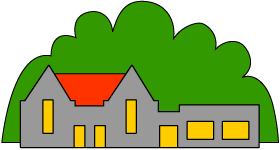At Aldborough Primary School, our aim is to deliver a broad Religion and Worldviews curriculum providing key knowledge, developing children’s understanding of values and beliefs and fostering a curiosity to find out about different religions across the globe.
EYFS
In EYFS, children explore celebrations throughout the year including ‘Diwali’ and of course ‘Christmas’. This includes learning about ‘People and Communities’ to ensure that children are able to know some similarities and differences between different religious and cultural communities in this country, using books read in class to enhance their understanding
The Religion and Worldviews curriculum is planned to enable the most disadvantaged children and those with SEND to achieve. Utilizing alternative ways for children to record their learning by using speech-to-text equipment allows topics to be accessed by all.
We use the Norfolk Agreed Syllabus to provide a high-quality Religion and Worldviews education and develop pupil’s religious literacy in the subject. We strive for our children to be able to be religiously literate and to be able to hold balanced and well-informed conversations about Religion and Worldviews.
‘Respect’’, ‘Individuality’ and ‘Community and collaboration’ form a huge part of the core values underpinned at Aldborough. Our work in Religion and Worldviews aligns with this directly with children being taught how to consider the beliefs of other communities in the world without judgement or bias. Our children are accepting of other beliefs and enjoy the experience of learning how other live their lives.
All learning will start by revisiting prior knowledge. This will be scaffolded to support children to recall previous learning and make connections. Staff will model and teach explicitly the subject-specific vocabulary, knowledge and skills relevant to the learning to allow them to integrate new knowledge into larger concepts. Cognitive Science approaches to the teaching of Religion and Worldviews will ensure children’s cognitive load is managed by using multimedia learning including dual coding to help them know and remember more. Spaced learning is also used to allow children ‘forgetting’ time and for teachers to revisit prior knowledge to see if it has been retained.
Religion and Worldviews assessment is ongoing and will be used at different stages of children’s learning to check understanding of both current and previous content taught. Mini quizzes, mind maps and other methods may be used to assess children’s learning formatively and summatively.
In assessing children’s learning in this subject, teachers will present 3 questions from the enquiry-specific assessment suite to pose to children at the beginning and end of a taught unit. This will cover both a substantive and disciplinary retrieval question with an opportunity for children to answer a question to show a greater depth of understanding of what they have learnt.
Classes use a large ‘floor book’ to share their learning journey through Religion and Worldviews collectively. This allows children to share their knowledge both as individuals, in a small group and as part of a whole group. Children can use the floor books to review previous learning and add their comments and feedback to what is being taught.
Our children will be given a variety of experiences both in and out of the classroom where appropriate to create memorable learning opportunities and to further support and develop their understanding.
What do we want our Religion and Worldview curriculum to enable pupils to do?
- make sense of religion and worldviews and begin to understand the complex world in which they live.
- become free thinking, critical participants of public discourse
- make academically informed judgements about important matters of religion and belief which may help to shape them as future citizens of the world.
(Norfolk Agreed Syllabus, 2019)
Subject leaders are given regular time to ensure resources are kept up to date, to monitor the subject across the school, create action plans and to provide subject feedback when appropriate.
At Aldborough Primary School, pupil voice shows that our children are becoming confident and adept when talking about what they have learnt in Religion and Worldviews using the subject-specific vocabulary they have been taught. Pupil voice also demonstrates that pupils enjoy Religion and Worldviews and can recall their learning over time, share their opinions and are able to compare and contrast different viewpoints.
The Subject leader will have allocated time to meet with children to discuss their learning and work in the subject to ensure that they have opportunities to share and communicate their learning outside of their written books.
Children’s work in each class floor book indicates that Religion and Worldviews is taught at an age-appropriate level across each year group with opportunities planned in for children working at greater depth.
Through high-quality teaching of Religion and Worldviews, we want pupils to know more and remember more. Building on knowledge and skills each year is key with the end goal of pupils being able to:
- to make links between their own lives and those of others in their community and in the wider world
- to understand why people choose, or choose not to follow a religion
- develop an understanding of other people’s cultures and ways of life
- extend their knowledge and understanding of religions and beliefs
- develop a religious vocabulary and interpret religious symbolism in a variety of forms
- reflect on questions of meaning, offering their own thoughtful and informed insights into religious and secular world-views
- explore ultimate questions of beliefs and values in relation to a range of contemporary issues in an ever-changing society
